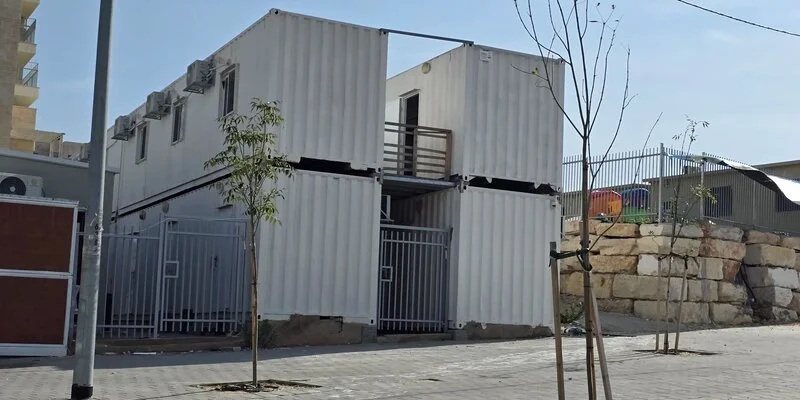The writing was on the wall: Another oil leak from the Ashkelon-Haifa pipeline
Last week, there was another leak in the Ashkelon-Haifa pipeline and 800 tons of contaminated earth have already been removed from the site. Two Mekorot facilities have been shut down until the impact on water quality can be assessed. Unlike previous ecological disasters, this one does not appear to have an external cause. “It’s a very serious incident,” said the environment minister, after the company that owns the pipeline called it “a leak with a small quantity of oil.”


Last week, there was another leak in the Ashkelon-Haifa pipeline and 800 tons of contaminated earth have already been removed from the site. Two Mekorot facilities have been shut down until the impact on water quality can be assessed. Unlike previous ecological disasters, this one does not appear to have an external cause. “It’s a very serious incident,” said the environment minister, after the company that owns the pipeline called it “a leak with a small quantity of oil.”

Last week, there was another leak in the Ashkelon-Haifa pipeline and 800 tons of contaminated earth have already been removed from the site. Two Mekorot facilities have been shut down until the impact on water quality can be assessed. Unlike previous ecological disasters, this one does not appear to have an external cause. “It’s a very serious incident,” said the environment minister, after the company that owns the pipeline called it “a leak with a small quantity of oil.”
In the leak location near Ashkelon this week. Photo: Daniel Dolev

Daniel Dolev
August 30, 2021
Summary


Listen to a Dynamic Summary of the Article
Created using NotebookLM AI tool
O
ver the weekend, there was a leak of crude oil in the Ashkelon Beach Region Council from a pipeline belonging to the Eilat-Ashkelon Pipeline Company. According to the Environmental Protection Ministry, by the next morning, some 800 tons of contaminated earth had been removed from the site and 100,000 liters of crude oil had been pumped from the pipeline, which had been shut down. It is still not clear how much oil leaked from the pipeline into the ground. The ministry’s Green Police have opened a criminal investigation into the circumstances of the incident.
Shomrim recently published a series of investigative reports about the damage to and leaks from pipelines owned by the EAPC – some of which are decades old. These include the leak of some 240,000 liters of oil near Shizafon in 2010. We also revealed that, in 2018, major damage was discovered to the pipeline that transports crude oil from Ashkelon to the oil refineries in Haifa, apparently the result of work on a local sewage line. According to EAPC documents, it was “a miracle” that the incident did not lead to a major oil leak in the sea. Similarly, it appears that in July 2013 there was another leak from the EAPC pipeline just a few yards from the location of this most recent incident.
Last week’s incident also happened on the Ashkelon-Haifa pipeline, in the fields adjacent to Moshav Mishan. Unlike the ecological disasters that occurred at Nahal Zin in 2011 and the Evrona nature reserve in 2014, this time the incident did not happen at a time when the pipeline was undergoing maintenance or repair. Rather, it happened during routine operations. Similarly, according to officials involved in repair and cleaning, the working assumption is that there was no external cause for the leak. At Nahal Zin, the pipeline was damaged by another company’s equipment.
.jpg)
Following the leak, two facilities belonging to the Mekorot water company were shut down and will only reopen once samples of the adjacent land prove that the quality of the water has not been compromised.

“This is a very serious incident,” Zandberg said, “which highlights yet again how dangerous and damaging it is to transport fossil fuels through the heart of the State of Israel.
According to the EAPC, the leak was spotted in the company’s supervision room, which shut of the flow of oil in the pipeline and informed the Environmental Protection Ministry. The company subsequently announced that “the small amount of oil that leaked has been pumped up and the company is working to clean the ground.”
In stark contrast to the EAPC statement, the Environmental Protection Ministry took a very dim view of the incident. Minister Tamar Zandberg visited the site, along with the director of her office, Galit Cohen, and other senior officials. The EAPC was also represented on the ground, with CEO Itzik Levy and others overseeing the clean-up.
“This is a very serious incident,” Zandberg said, “which highlights yet again how dangerous and damaging it is to transport fossil fuels through the heart of the State of Israel. This incident proves that accidents happen all the time and we absolutely must not let such incidents occur close to sensitive locations, on land or at sea, or close to the coral reefs that have such global importance. We will examine the circumstances of this incident and we will take whatever enforcement measures we deem necessary.”
The ministry also said that more than three dunams of land had been contaminated and that the Green Police has launched a criminal probe, taking statements from those involved in the leak. Shomrim understands that authorities intend to confiscate the 12 meters of pipeline that was replaced and may use it as evidence.
Following the leak, two facilities belonging to the Mekorot water company were shut down and will only reopen once samples of the adjacent land prove that the quality of the water has not been compromised.
Unlike the ecological disasters that occurred at Nahal Zin in 2011 and the Evrona nature reserve in 2014, this time the incident did not happen at a time when the pipeline was undergoing maintenance or repair. Rather, it happened during routine operations.
.png)
Shomrim’s investigative articles
It took the EAPC more than seven to remove millions of liters of oil from a 60-year-old pipeline it once called “a ticking time bomb”
.png)
More than 240,000 liters of oil leaked into the Negev. The public wasn’t told
%20(1).jpg)
Official EAPC documents: “It’s a miracle” there hasn’t been an oil leak in Haifa
%20(1).jpg)













